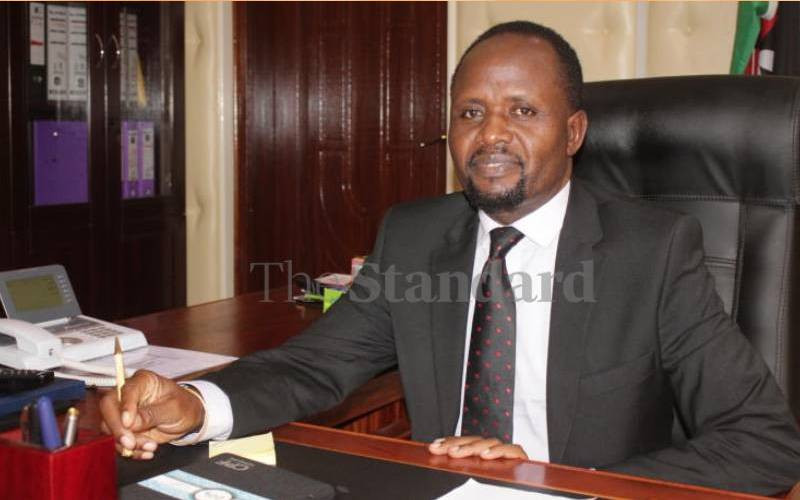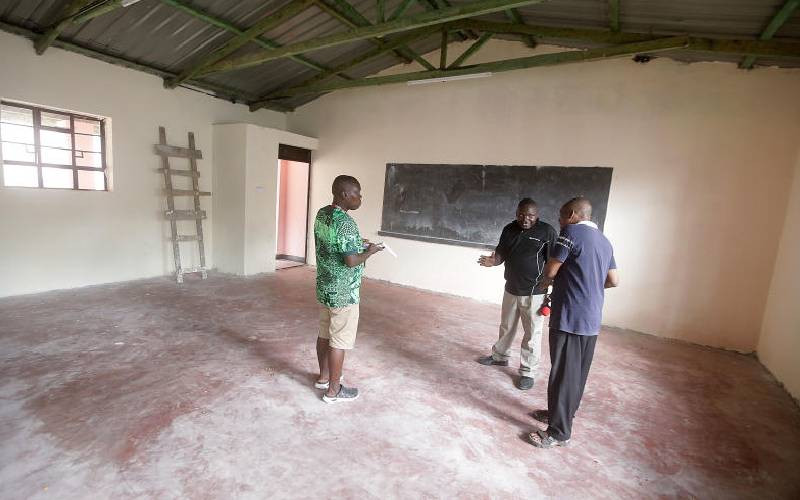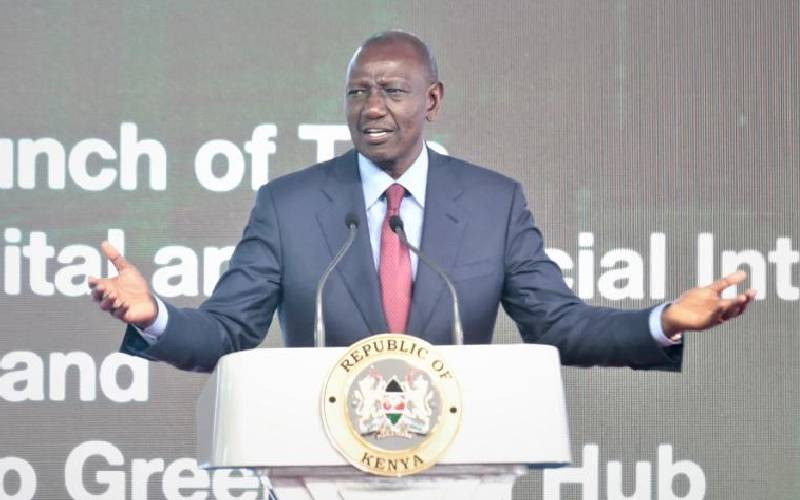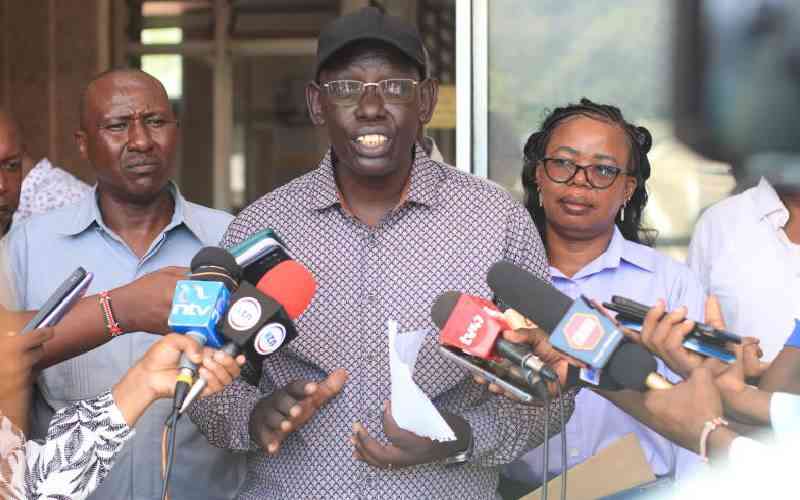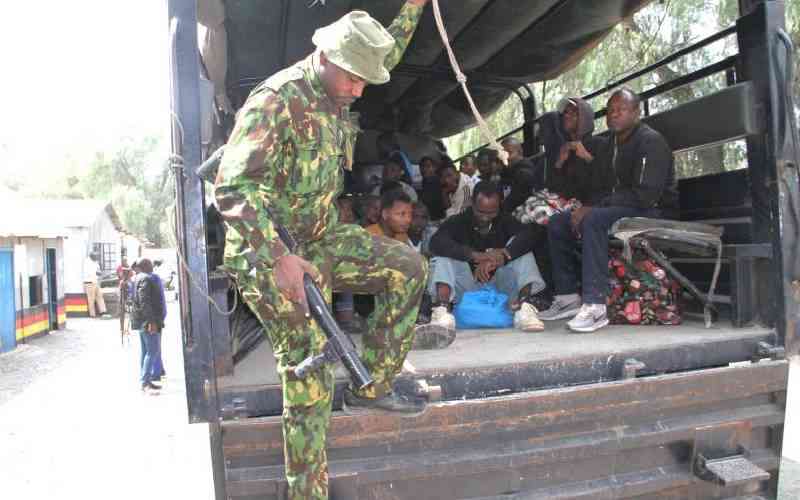Last month was the darkest moment for the private sector only comparable to late 2017 when a protracted electioneering period chocked businesses.
Purchaser’s Managers Index (PMI) survey, a barometer for the health of the private sector, showed a plunge in business activities to 37.5 in March from 49 recorded in February due to the outbreak of the coronavirus disease that has disrupted global supply chains and brought the hospitality industry to its knees.
The virus hammered consumer demand, while employment fell and demand for inputs declined at the quickest pace since late 2017, noted the report.
The economy is on a standstill fuelled by draconian measures designed to stop the spread of the disease. The government banned conferences, restricted all international passenger flights and closed bars, hotels and restricted social gatherings.
The business environment for 2020 could easily come out as the worst in Kenya’s history as the disease wipes out billions of shillings in revenues.
“Kenyan firms saw a marked drop in business activity during the month, which was widely linked to the impact of the Covid-19 on consumer demand,” said the report.
“The longer the duration, the more acute or severe the impact will be.”
The PMI reading for last month released yesterday was the second-worst reading in the history of the survey. According to the survey, which is prepared by Stanbic Bank and HIS Markit, a data analytics firm, jittery consumers cancelled or reduced new orders leading to a steep fall in total sales. It was the second sharpest fall in the total sale on record and is likely to get worse as the pandemic continues to wreak havoc across the world.
Jibran Qureishi, Regional Economist East Africa at Stanbic noted that the sharp drop in PMI, in which readings below 50 signals deterioration in business environment on the previous month, noted that the negative effects of the virus were broad-based. However, he explained, certain sectors took a hit more than others.
Travel restrictions
“The tourism and floriculture have been hit the hardest so far, admittedly due to global cross border travel restrictions and waning luxury spending in markets such as Europe,” explained Qureishi, noting that sourcing for materials from markets such as China had also been interfered with.
He was, however, optimistic that Chinese factories will restart production as early as mid-April, which would soften the blow of coronavirus that has so killed three Kenyans. Another 110 had been infected by the end of Thursday.
Recent modelling by global management consulting firm McKinsey projected that earnings from flowers and tourism will decline by about 90 per cent. Thousands of employees in the two sectors have either been laid off or sent on unpaid leave.
With reduced human activity as a result of stringent measures announced by the Government and aimed at arresting the Covid-19 pandemic spread, various institutions, including the Central Bank of Kenya (CBK) have all lowered the country’s economic growth prospects.
McKinsey expects Kenya’s economy to shrink, in the worst-case scenario, by five per cent, which would see it lose at least a trillion shillings.
Stay informed. Subscribe to our newsletter
In the best-case scenario, it projected the economy to expand by 1.9 per cent compared to a baseline of six per cent earlier projected by the African Development Bank.
CBK has also revised downwards its growth projections from 6.2 per cent to 3.4 per cent.
According to the findings of the survey, the downturn was widely due to the outbreak of coronavirus disease, which led to a large drop in consumer demand and client orders.
Employment, the PMI survey found, was lowered for the first time in 11 months with firms reporting less pressure on current workloads.
 The Standard Group Plc is a
multi-media organization with investments in media platforms spanning newspaper
print operations, television, radio broadcasting, digital and online services. The
Standard Group is recognized as a leading multi-media house in Kenya with a key
influence in matters of national and international interest.
The Standard Group Plc is a
multi-media organization with investments in media platforms spanning newspaper
print operations, television, radio broadcasting, digital and online services. The
Standard Group is recognized as a leading multi-media house in Kenya with a key
influence in matters of national and international interest.
 The Standard Group Plc is a
multi-media organization with investments in media platforms spanning newspaper
print operations, television, radio broadcasting, digital and online services. The
Standard Group is recognized as a leading multi-media house in Kenya with a key
influence in matters of national and international interest.
The Standard Group Plc is a
multi-media organization with investments in media platforms spanning newspaper
print operations, television, radio broadcasting, digital and online services. The
Standard Group is recognized as a leading multi-media house in Kenya with a key
influence in matters of national and international interest.


